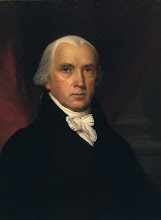The smartest people grasp the zeitgeist and combine high and low culture, especially as pertains to language. These include Martin Luther, Raymond Chandler and of course, William Shakespeare. That's not an all-inclusive list, but mentions just a few people I know of who can sound both germane and profane.
Shakespeare was perhaps unique in that he was writing during a time that the language around him was changing at a blistering pace. Olde English was becoming modern English, and the lexicon of kings was blending with the harsher tongue of peasants and roadside robbers. In addition, as travel became comparably easier and faster, words were being borrowed from other languages. Spelling and pronunciation of the language he spoke were undergoing changes, new words were being introduced ... it must have been a linguistic tossed salad the likes of which has not been seen since the Tower of Babel (and that project failed). Shakespeare drew from all these phenomenae to ply his craft, nay, thrived on them. It's a wonder that his plays are even comprehensible (millions of high school sophomores might beg to differ), let alone entertaining.
He not only created new phrases that caught on; he is credited with creating new words. Lots of them. Maybe I should have known that, but of all the accomplishments attributed to him, that's the one that blows my mind. Not that he created new words; lots of people try that, both good and bad writers (and non-writers) among their number. But that he was able to condense the shifting vocabulary of his time, and that so many of the new words caught on.
Which brings me to the title of today's entry, and the following rationale: Shakespeare invented the word 'puke.'
You're welcome, high school sophomores.
Friday, February 19, 2010
Subscribe to:
Posts (Atom)
